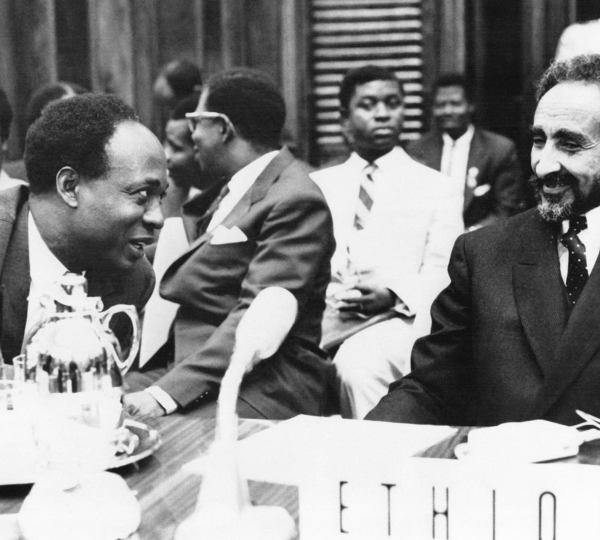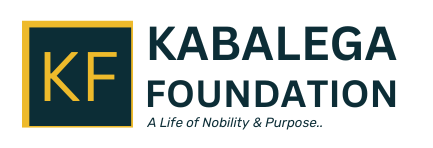Beyond Borders: Pan-Africanism as a Blueprint for Social and Continental Progress

Opinion | By the Executive Director, Kabalega Foundation
Pan-Africanism, both as a political movement and a cultural philosophy, has long been a beacon of hope and unity for the African continent and its global diaspora. In the face of escalating global inequalities, rising neocolonial influence, and the persistent fragmentation of Africa, the time has come to reawaken a vision that once inspired our forebears to dream boldly: Pan-Africanism.
As Executive Director of Kabalega Foundation—a platform committed to African renaissance through leadership, policy, and heritage—I argue that Pan-Africanism is not merely a nostalgic call to unity; it is a living, actionable blueprint for Africa’s social and continental progress.
Historical Roots of Pan-Africanism
The origins of Pan-Africanism date back to the late 19th and early 20th centuries, shaped by African intellectuals and revolutionaries such as W.E.B. Du Bois, Marcus Garvey, and later Kwame Nkrumah, Julius Nyerere, Capt. Thomas Isidore Sankara, Jomo Kenyatta, Patrice Lumumba of Congo, Haile Selassie of Ethiopia, among others, and shared in the aspirations of great African pre-colonial stalwarts such Omukama (king) Cwa II Kabalega of Bunyoro, Shaka Zulu of Zulu-land ( present-day South Africa), Samori Touré of the Wassoulou Empire in West Africa, Menelik II of Ethiopia, Hendrik Witbooi of the Nama people in West Africa, Yaa Asantewaa, the Queen Mother of the Ashanti Empire in Ghana, among many others. It emerged as a response to the global subjugation of Black people and sought to build unity across national and ethnic lines.
The 1945 Manchester Pan-African Congress marked a turning point, setting the tone for the decolonization movements that would sweep across Africa in the following decades. With the formation of the Organisation of African Unity (OAU) in 1963—now the African Union (AU)—Pan-Africanism began transitioning from a liberation movement to a framework for political and socio-economic integration.
Why Pan-Africanism, and Why Now?
From Accra to Addis Ababa, Kinshasa to Kigali, the African continent stands at a crossroads. Despite decades of independence, too many of our nations remain beholden to external powers for trade, security, and development. Worse still, we find ourselves fractured by borders we did not draw, and identities that were manipulated for division.
Pan-Africanism offers an antidote to this fragmentation. It reminds us that while colonialism may have drawn lines across our lands, our fates remain intertwined. It is this interdependence—this shared memory of struggle and hope—that must guide our path forward.
Social Progress Through Shared Identity
One of the most powerful aspects of Pan-Africanism is its ability to foster a shared identity rooted in dignity and agency. Imagine the potential of a continent where education is decolonized and harmonized—where a child in Lusaka learns about the liberation heroes of Maputo, and a student in Dakar reads literature by Somali poets alongside Shakespeare. Such an education does not just inform; it empowers.
Healthcare is another arena where cooperation—not competition—is key. The Africa CDC’s coordinated response to COVID-19 was a glimpse of what is possible when we act as one. Why should such unity be the exception, and not the norm?
Our young people, the majority population in almost every African country, deserve an Africa that believes in them—an Africa that invests in their ideas, their startups, their music, and their activism. A Pan-African vision compels us to work across borders to ensure that no young African is left behind due to the passport they hold or the language they speak.
Economic Unity: From Dependency to Self-Determination
At the Kabalega Foundation, we believe Africa cannot rise until it reclaims its economic sovereignty. The African Continental Free Trade Area (AfCFTA) is not just a bureaucratic milestone; it is a revolutionary step toward an integrated Africa. If implemented with vision and courage, it can unlock home-grown industries, reduce our reliance on external markets, and create jobs at scale.
But more must be done. We must break the colonial value chains that still define our economies—where we export raw cocoa and import chocolate, mine lithium but import batteries. Pan-Africanism teaches us to retain value, not just resources.
Political Cohesion in a Multipolar World
Global power is shifting. Africa must speak with one voice—or risk being spoken for. In trade negotiations, climate talks, and diplomatic arenas, Africa needs more than attendance; it needs influence.
That influence will not come from 54 disparate voices, but from a coordinated bloc driven by a shared Pan-African agenda. This does not mean erasing national identity, but strengthening it through continental solidarity. The African Union must be empowered not only with resources but with the political will of its member states.
Cultural Sovereignty as a Tool for Healing
Beyond politics and economics, Pan-Africanism calls for a cultural renaissance. For too long, African culture was either commodified for export or suppressed for control. Today, we are witnessing a powerful reclamation—through art, fashion, film, and language.
But this movement must go deeper. We must fund African heritage institutions, digitize indigenous knowledge, and protect endangered languages. Let us not forget: culture is not decoration—it is the DNA of a people’s identity.
Let us be honest: Pan-Africanism has not been without its failures. Grand conferences have yielded little follow-through. Political rhetoric has often masked self-interest. Yet, we must not abandon the ideal because of the imperfection of its implementation.
At the Kabalega Foundation, we advocate for a Pan-Africanism that is practical, people-centered, and intergenerational. One that emerges not only from presidential palaces, but from village councils, university lecture halls, tech incubators, and diasporic networks.
Africa cannot afford to go it alone—nor can any single African nation. If we are to build an Africa that is peaceful, prosperous, and proud, we must think and act beyond borders.
The blueprint exists. What we need now is the courage to build.
About the Author
The author is the Executive Director of the Kabalega Foundation, a pan-African platform and advocacy organization focused on leadership, policy, and cultural revitalization for Africa’s sustainable future.
